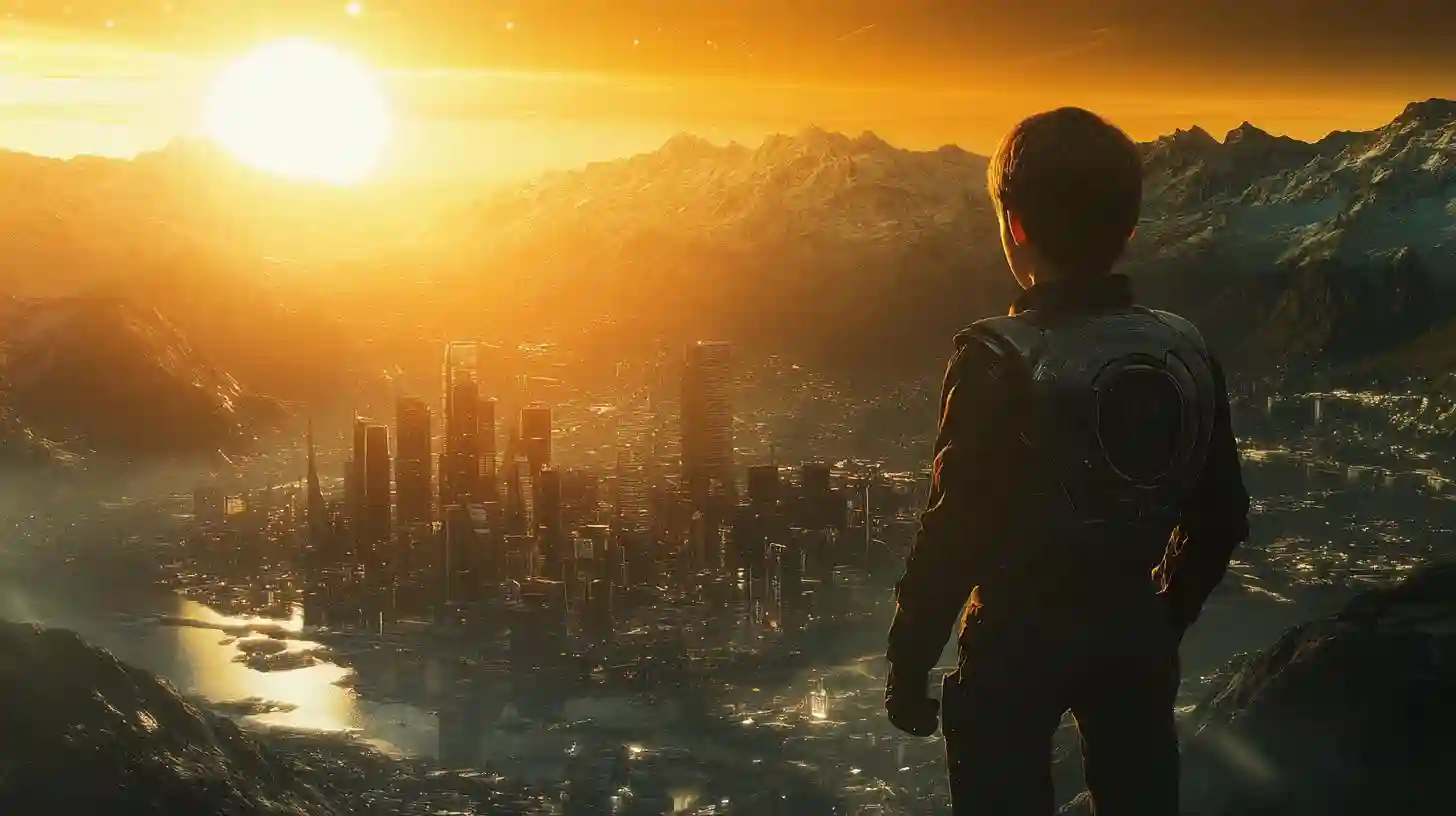
Ender's Game stands out as a pivotal work in both literature and cinema, captivating not just the ardent science fiction fans but also those with a deep appreciation for the art of filmmaking. Based on Orson Scott Card's acclaimed novel, the film rendition elevates the original narrative, bringing to life the strategic complexities and ethical dilemmas faced by its young protagonist. What makes this story indispensable for sci-fi enthusiasts and film lovers alike is its remarkable blend of action, psychological depth, and moral questions that resonate far beyond the screen.
At the heart of Ender's Game is the journey of a gifted young boy thrust into a high-stakes military training program designed to prepare Earth’s defenders against an extraterrestrial threat. This premise creates an immediate tension and gripping narrative that drives the audience to consider what it means to be a leader at a tender age. Ender Wiggin, portrayed with compelling nuance, grapples with expectations placed upon him, showcasing a vulnerability that allows viewers to empathize with his struggles, despite the flashy space battles and advanced technology surrounding him.
The film adeptly navigates themes of isolation, manipulation, and the weight of expectation. Ender is not merely a pawn in a game; he is a deeply complex character forced to make nearly impossible decisions. The ethical implications of warfare loom large, pushing audiences to reflect on the real-world consequences of militarism and leadership. This dimension of the story elevates it beyond mere entertainment, inviting the viewer to ponder their own moral compass in the face of conflict and sacrifice.
Visually, Ender’s Game is a feast for the eyes, employing cutting-edge CGI to create stunning battle scenes and imaginative spaceship designs. The film transports viewers to a fully-realized universe that feels both futuristic and eerily relatable. The impressive visual effects are complemented by an equally ambitious score that ramps up the emotional stakes, enhancing the tension of every scene. Cinematography in Ender’s Game plays a crucial role, often employing a blend of wide shots and tight close-ups to balance the grandeur of space combat with the intimate struggles of its protagonist.
The casting choices also significantly contribute to the film’s impact. Asa Butterfield's portrayal of Ender captures the character's intelligence and vulnerability, while supporting roles, including those played by Harrison Ford and Viola Davis, add further gravitas to the narrative. The actors navigate their characters’ intricate relationships, each performance adding layers to the storyline and enriching the thematic exploration of loyalty, betrayal, and the consequence of choices. The dynamic between Ender and his peers becomes a microcosm for larger societal issues, reflecting how teamwork and competition can coexist in a high-pressure environment.
One of the most compelling reasons Ender's Game resonates with both sci-fi enthusiasts and film lovers is its ability to engage with philosophical questions regarding identity and the nature of humanity. As Ender grows and evolves in the training program, he is confronted with scenarios that challenge his understanding of friendship, power, and morality. The film opens a dialogue about what defines a hero, exploring whether the ends justify the means in the pursuit of victory. Sci-fi serves as a perfect platform for this exploration, allowing the narrative to stretch beyond the limits of contemporary society and probe deeper ethical concerns.
Moreover, Ender's Game's commentary on the manipulation of youth in warfare speaks to contemporary dialogues surrounding child soldiers and the ethics of using children as instruments of conflict. This element adds a layer of social awareness to the brilliant storytelling, encouraging audiences to engage critically with the material. Ender’s journey becomes symbolic of the loss of innocence and the harsh realities of growing up, striking a chord with viewers across all ages.
The cultural impact of Ender's Game extends further, continuing to influence a new generation of storytellers and filmmakers. Its themes are echoed in various forms of entertainment, underscoring its lasting significance. As both a compelling sci-fi narrative and a profound exploration of human nature, the film remains a classic within the genre, deserving of exploration by anyone interested in the depths of storytelling. Its ability to challenge both characters and audiences at multiple levels solidifies Ender's Game as a must-watch for those who seek to lose themselves in the infinite possibilities that science fiction has to offer.